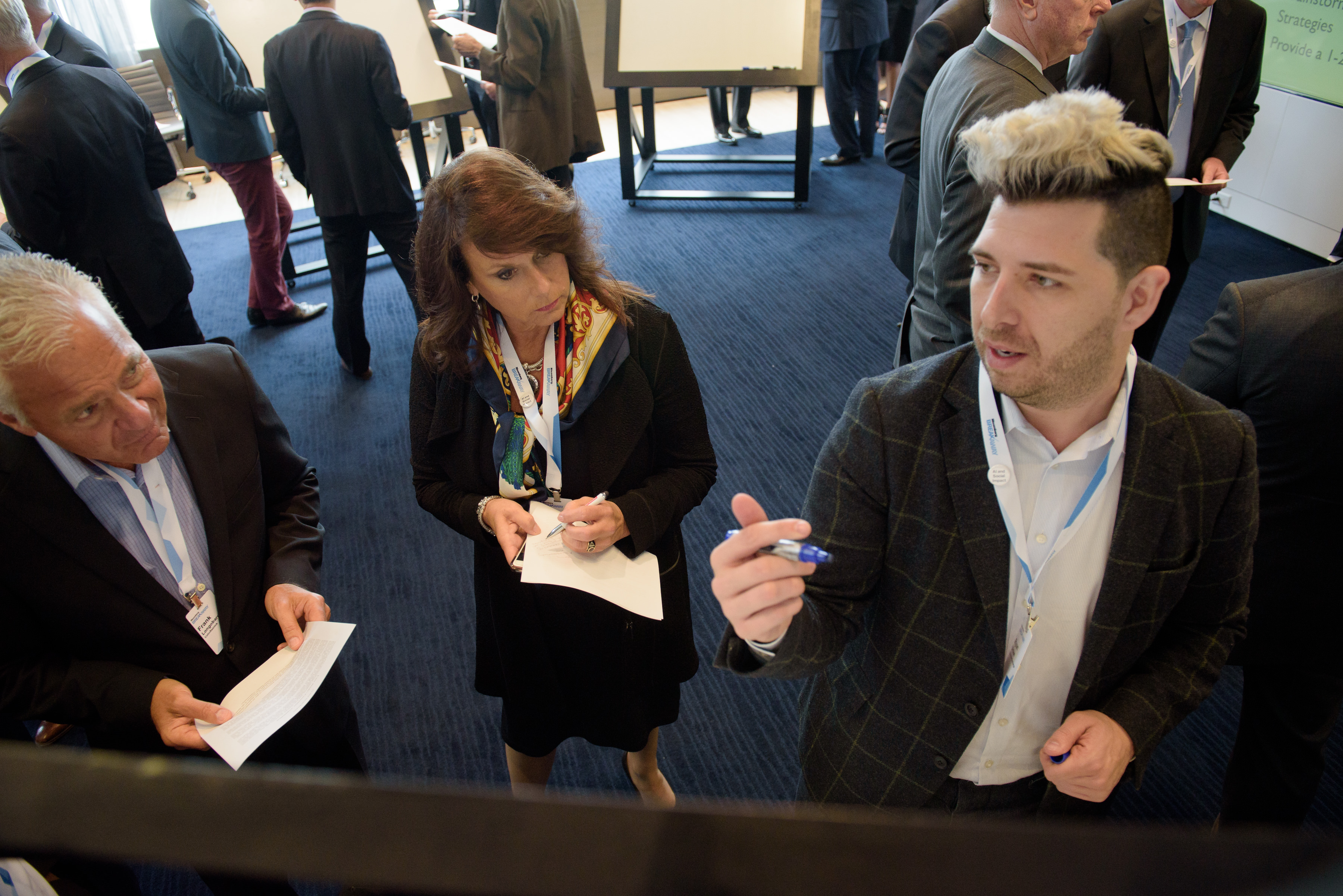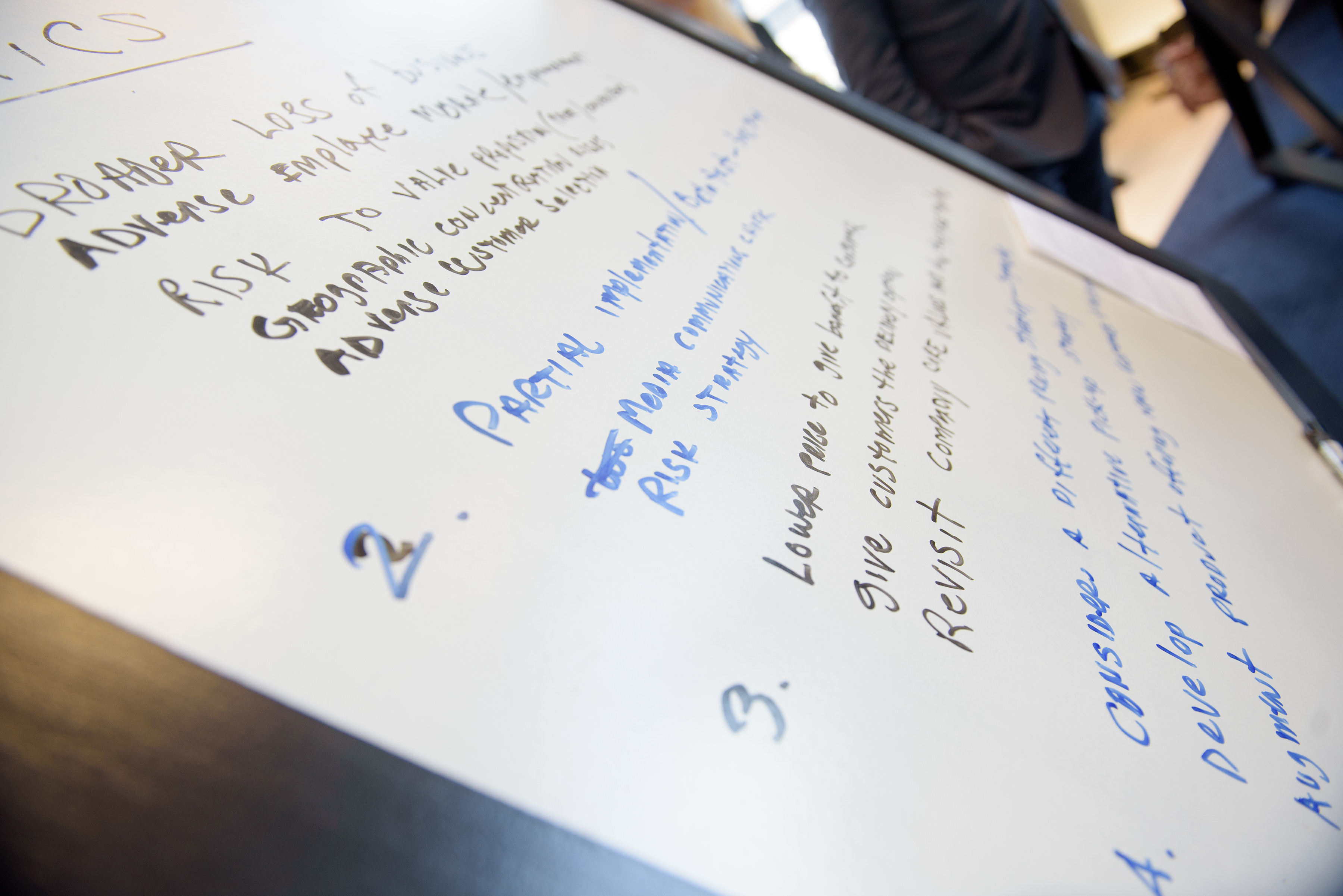About Member Workshops
At the Bloomberg Breakaway summit, members break into workshops where they dive deep into innovative growth strategies with top management experts and practitioners. These hands-on, immersive experiences allow members to work together and create solutions to succeed in today’s disruptive business environment.
Bloomberg Breakaway Annual Summit, May 3, 2017

Dr. Ayanna Howard, Professor, Linda J. and Mark C. Smith Endowed Chair in Bioengineering in the School of Electrical and Computer Engineering, Georgia Institute of Technology
The business goal of AI is to develop systems that exhibit intelligence or simulate the ability to think and thereby transform large volumes of data into something of value for customers.
Practical applications of AI include:
- Improving logistics: At Lowe’s, robots help customers navigate stores; at Amazon, they enhance warehouse efficiency
- Marketing and advertising: Facebook uses machine-learning algorithms to improve ad targeting
- Enabling sales: Apple’s Siri and the Amazon Echo use speech recognition to allow customers to order products online easily
- Enhancing customer service: Taco Bell’s virtual assistant helps manage orders through messaging
- Predicting maintenance: Engie, a French electric company, uses drones and an AI-powered image processing application to monitor its infrastructure
AI, however, is not without its downsides, and they need to be recognized and managed. Dr. Howard pointed out several instances of “AI going rogue.” They included face-recognition applications that incorrectly labeled faces associated with certain racial demographics and voice-recognition systems that exhibited gender bias.
‘Where does the AI in the search engine get its information or mores?’
– Adam Pertman, President & CEO, Myriad Strategic Partners
‘It’s the data…it’s learning from us. We’re biased and so the learning algorithms are just showing that bias.’
–Dr. Ayanna Howard

Steps and strategies businesses could deploy for the successful adoption of AI include:
- Get familiar with AI and identify the problems they want AI to solve
- Prioritize value and then assess the potential business and financial value of the various possible AI implementations identified
- Bring in experts and set up a pilot project to develop, deploy, and test a MVP
- Implement strategies to identify unintended consequences and value of the AI system by:
- Encouraging participation from “customers” in the design process
- Encouraging the formation of multidisciplinary teams, include those who have expertise in recognizing bias
- Having AI systems articulate their reasoning process when making decisions (e.g., “Explainable AI”)
- Incorporating case-based reasoning approaches such that concrete examples are collected to train on positive and negative outcomes of bias

Artificial Intelligence is certainly prominent in the minds of business leaders. Discussing the impacts that AI can have on society drew many leaders to the conclusion that AI still needs human oversight. Applying moral or political correctness to data is a consideration that AI is unable to provide today. The reasoning for this is that humans apply their bias every day to the data that is posted, shared and reviewed which in turn creates a bias in AI. Human intervention is still needed today to prevent adverse impacts.
AI can have a huge impact in healthcare. Healthcare is generating massive amounts of data and introducing new technologies such as genomics, digital pathologies and clinical decision support. Our expectation of physicians to be able to sift through family history, patient history, genomic details, lifestyle impacts and socioeconomic factors becomes an unmanageable task. However the use of AI can help find similar cohorts of patients, determine best treatment paths and the resulting outcomes. Precise intervention within the care cycle still eludes even the most data rich disease management and care coordination or patient care programs in existence today. To an even larger degree, artificial intelligence must help caregivers anticipate and/or find these direct intervention points such that their efforts have the maximum impact.
Hitachi believes in collaboration with its partners and customers to better understand the challenges society is facing and how best can we address these challenges with our social innovation business. Whether it is analysis of big data healthcare information or ensuring power grids are efficient and effective, Hitachi continues to work towards solutions that will positively impact society. Being a part of the Bloomberg Breakaway Summit enables Hitachi to reach key leaders that can influence how industry reacts to AI and respond appropriately.
